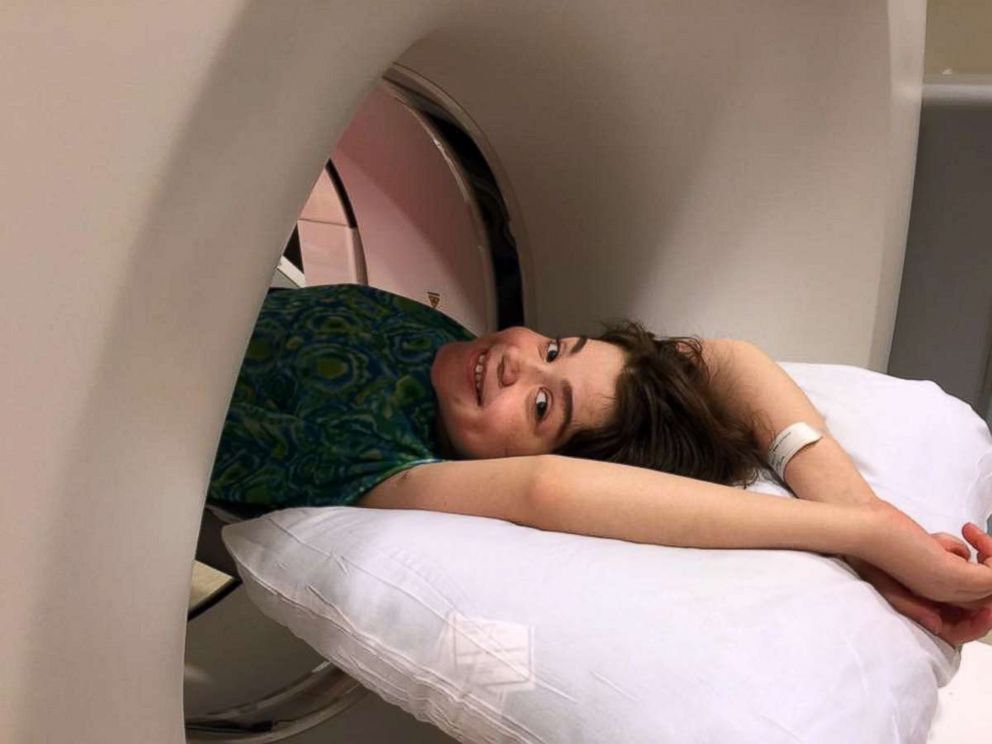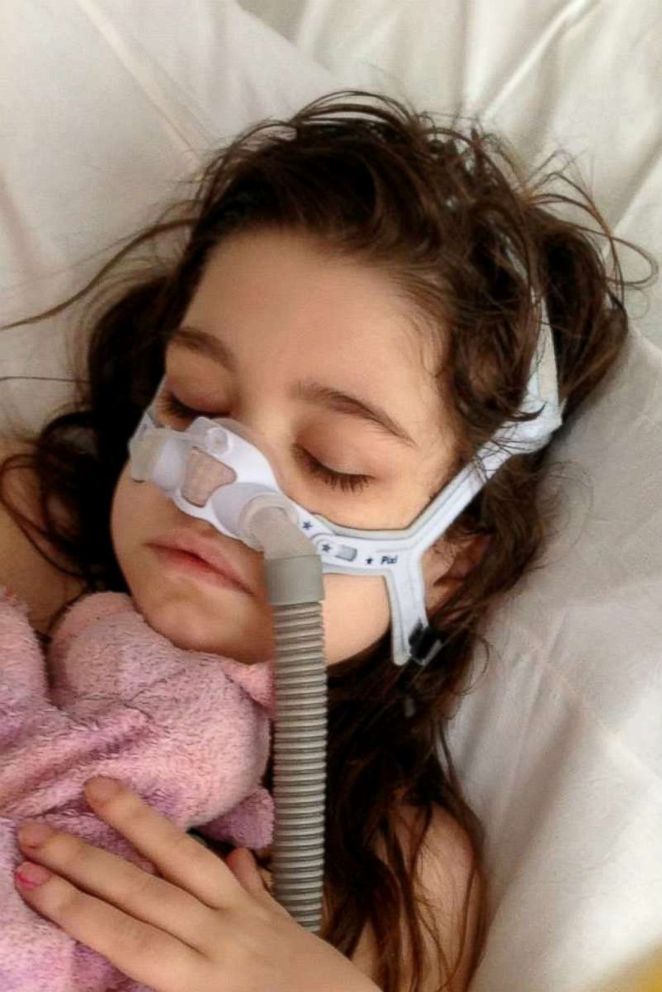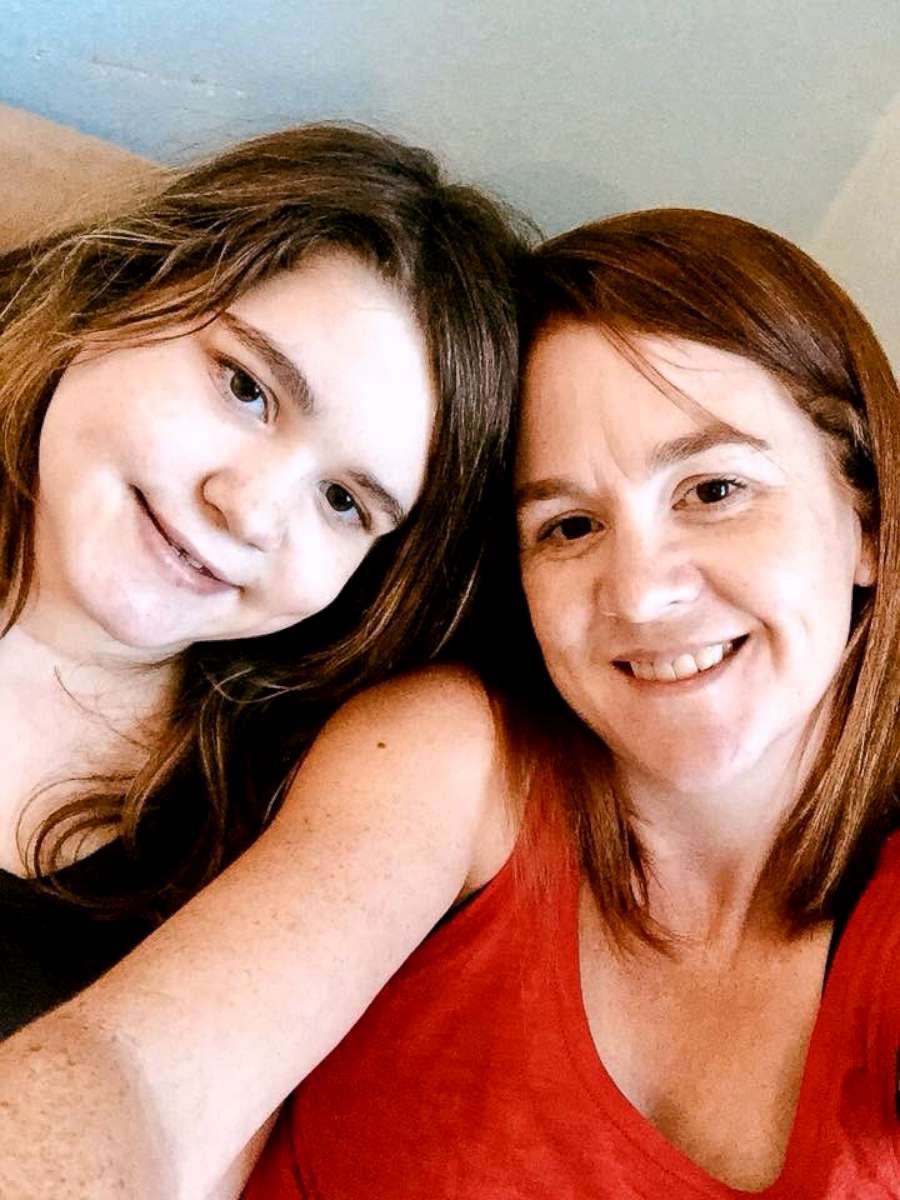How one mother fought to change an organ transplant policy to save her daughter's life
Five years ago, Sarah Murnaghan's case gained national attention.
A mother who went before a federal judge to fight for the life of her child is sharing how she helped change a seemingly outdated policy so her daughter wouldn't die while waiting on a transplant list.
Five years after Sarah Murnaghan's case gained national attention, mom Janet Murnaghan said the now 16-year-old is thriving after she ultimately received a life-saving lung transplant.
"We feel so unbelievably blessed that she's here because we certainly had to imagine a future without her," Janet Murnaghan of Cocoa Beach, Florida, told "Good Morning America." "We couldn't have envisioned her getting to this point. Where she is today was such a far-off thought to me back then."

We certainly had to imagine a future without her.
Sarah was diagnosed with cystic fibrosis when she was a 1-year-old. By the age of 6, her health took a turn and she contracted a bacterial infection in her lungs that required treatment with antibiotics. Years later, the medicine stopped working and Sarah's lung function had dropped down to 30 percent.
"She went on full-time oxygen and was listed for a double lung transplant," Janet Murnaghan said.
The shocking "Under 12 rule"
Because Sarah was under the age of 12, she would be given priority as an organ recipient when pediatric lungs became available. One year later, her parents gave consent for her to be placed on the over 12-year-old list in a bigger donor pool, so she'd have a better chance of receiving a set of lungs, Murnaghan said.

There was no way she was going to live if I didn't fight.
But little did the family know, an organ transplant policy of the United Network for Organ Sharing that would later become known as the "Under 12 rule," was pushing their dying daughter to the bottom of the adult lung transplant waiting list.
The Under 12 Rule said that although Sarah would be given priority to a child's lungs, adult lungs would have to be offered to adult matches in her region before they could be offered to her. It was solely based on the patient's age, instead of medical need.
At that point, Sarah had been transferred to the pediatric intensive care unit at Children's Hospital of Philadelphia (CHOP) and had weeks to live.

It was such an injustice.
"We realized that children under 12 were dying about twice the rate and waiting much longer than anyone else [for lungs]," Murnaghan recalled of researching the Under 12 policy. "My immediate reaction was it was such an injustice that we needed to fight it. There was no way she was going to live if I didn't fight. I was almost certain no parents of children on the list were understanding this [policy] either."
Fighting for a child's life
Murnaghan started a Change.org petition at the end of May 2013, calling attention to the rule, which said that even though Sarah would be given priority when pediatric lungs became available, adult lungs would have to be offered to adult matches in her region before they could be offered to her.
"We were asking for her to be listed as a 12-year-old so that she could be evaluated based on how sick she was," Murnaghan explained. "They came out and defended their policy and we debated each other in the press."
On June 5, 2013, a federal judge issued a temporary restraining order to prevent U.S. Health and Human Services Secretary Kathleen Sebelius from enforcing the rule for Sarah. By June 10, the Organ Transplantation and Procurement Network re-evaluated the Under 12 Rule and decided to keep it but created a mechanism for exceptions, depending on the case.

Children under 12 were dying about twice the rate.
Two days later, Sarah received a double lung transplant from an adult donor, making her the 11th child to receive one since 1987, but the transplant failed. On June 15, Sarah received a second lung transplant from an adult donor.
She left CHOP in late August and today, is doing "fabulous," Murnaghan said, adding that her teen hopes to become a writer someday.
"The simple act of going to school -- she hadn't gone to school since third grade," Murnaghan added.
A mother succeeds in changing a policy
One year after the Murnaghan's successful fight for Sarah's lung transplant, the Organ Procurement and Transplant Network and the United Network for Organ Sharing eliminated the Under 12 rule. Under the new policy, if a patient under the age of 12 meets certain criteria, a hospital’s transplant team can ask to list the patient on both the pediatric and adult waiting lists for donor lungs.
In her recently released tell-all book, Murnaghan reveals how she rallied against the restrictions in the health care field that would have ultimately robbed Sarah of a long life.
The novel, "Saving Sarah: One Mother's Battle Against the Health Care System to Save Her Daughter's Life," peeks into Murnaghan's desperate fight for her child.

I'm hoping it gives (parents) the determination and fight.
"Even though I was out there doing this public fight, there's so many decisions made inside the hospital," Murnaghan explained. "It's a very hard and lonely place and seeing other people go through it, I'm hoping it gives [parents] the determination and fight they need for their families."
Sarah Murnaghan told "GMA" that she hopes her story encourages kids in similar situations to keep fighting for their lives.
"I also want people to see the amazing gift of organ donations," she said.
Editor’s note: A previous version of this story identified the Under 12 rule as a law. The Under 12 rule is not a law, but an organ transplant policy.




